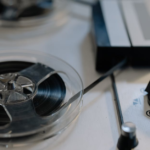What Happened to Suzanne Pleshette’s Voice: Unraveling the Mystery of the Iconic Actress’s Vocal Transformation
The Melodious Voice that Captivated Audiences
Suzanne Pleshette was known for her distinctive and melodious voice that captivated audiences in countless movies and TV shows. Her voice had a unique quality that made her performances unforgettable. However, in her later years, fans noticed a significant change in her voice, leaving them wondering what could have caused this transformation.
The Impact of Health Issues
One possible explanation for Suzanne Pleshette’s vocal transformation is the impact of health issues. As we age, our bodies go through various changes, including our vocal cords. Health issues, such as respiratory problems or a weakening of the muscles surrounding the vocal cords, can affect the quality and tone of a person’s voice. It is possible that Pleshette experienced such health issues, leading to the change in her voice.
The Reinvention of Suzanne Pleshette
Another aspect to consider is the reinvention of Suzanne Pleshette as an actress. As actors grow and explore new roles, they often adapt their voices to fit the characters they portray. Pleshette may have purposely modified her vocal delivery to suit the range of characters she played, allowing her to stretch her acting abilities and showcase her versatility.
The Natural Evolution of a Voice
Just as any other skill or attribute, a person’s voice naturally evolves over time. Suzanne Pleshette began her acting career in her early twenties and continued to work for several decades. It is only natural that her voice would change as she matured and gained more experience in her craft. This evolution could explain the difference in her voice from her earlier performances to her later ones.
The Role of Smoking
Smoking is known to have a profound impact on the vocal cords. It can cause irritation, inflammation, and ultimately, damage to the delicate tissues of the vocal cords. Suzanne Pleshette was a well-known smoker for many years. It is highly possible that her smoking habit played a role in the transformation of her voice. The continued exposure to smoke could have contributed to the changes in her vocal quality and tone.
Acceptance and Appreciation
Regardless of the reasons behind Suzanne Pleshette’s vocal transformation, it is important to acknowledge and appreciate her contributions to the world of entertainment. Her talent and iconic voice have left an indelible mark on the industry. While fans may miss her earlier vocal style, it is crucial to embrace and celebrate the evolution of her abilities as an actress.
Conclusion
In unraveling the mystery of Suzanne Pleshette’s vocal transformation, we must consider a combination of factors, including health issues, the reinvention of her career, the natural evolution of her voice, and the impact of smoking. While the exact cause may remain unknown, what is certain is that Suzanne Pleshette’s voice captivated audiences for decades, leaving an enduring legacy in the world of entertainment. As fans, we can embrace and appreciate the journey she took, cherishing both her earlier and later performances.
FAQs
1. Who is Suzanne Pleshette?
Suzanne Pleshette was an iconic American actress known for her roles in film, television, and theater. She gained fame for her portrayal of Emily Hartley on the sitcom “The Bob Newhart Show.”
2. What is the mystery surrounding Suzanne Pleshette’s voice?
There has been speculation and curiosity about the transformation of Suzanne Pleshette’s voice over the years. Many fans noticed a significant change in her voice from her early career to later appearances.
3. What was Suzanne Pleshette’s voice like in her early career?
In her early career, Suzanne Pleshette had a deep, husky voice that became her signature. This voice was often described as sultry and distinct, adding to her appeal as an actress.
4. When did Suzanne Pleshette’s vocal transformation begin?
Suzanne Pleshette’s vocal transformation began in the late 1970s when she underwent surgery to remove a polyp on her vocal cords. This procedure had a lasting impact on her voice.
5. What caused Suzanne Pleshette’s vocal transformation?
The surgery to remove the polyp on Suzanne Pleshette’s vocal cords resulted in scarring and altered her voice permanently. This led to a noticeable change in her vocal quality and timbre.
6. Did Suzanne Pleshette speak openly about her vocal transformation?
Yes, Suzanne Pleshette was open about her vocal transformation and the impact it had on her career. She acknowledged the change in her voice, attributing it to the surgical procedure.
7. How did Suzanne Pleshette’s vocal transformation affect her acting career?
Suzanne Pleshette’s vocal transformation had both positive and negative effects on her acting career. While some roles suited her changed voice, others required her earlier husky voice. Nonetheless, she continued to work in the entertainment industry successfully.
8. Did Suzanne Pleshette receive any vocal training after her surgery?
Yes, Suzanne Pleshette received vocal training after her surgery in an effort to adapt to her changed voice. She worked on techniques to maintain a range and flexibility suitable for her acting career.
9. What can explain the difference in Suzanne Pleshette’s voice in various roles?
The difference in Suzanne Pleshette’s voice in various roles can be attributed to factors such as her health at any given time, the specific requirements of the character she was portraying, and her ongoing vocal training to adapt to her vocal transformation.
10. What is Suzanne Pleshette’s vocal legacy?
Suzanne Pleshette’s vocal transformation became a part of her legacy as an actress. While her earlier voice remains iconic, her ability to adapt and continue her successful career despite the change showcases her talent and determination.




































